Articles Archive
See all articles and discover more interesting topics!
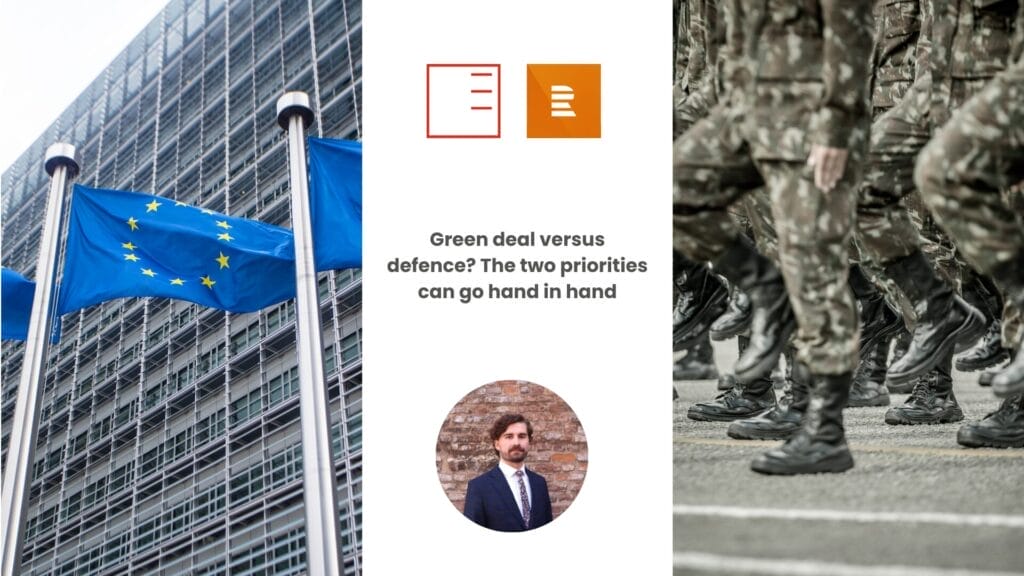
ČRo Plus | Green deal versus defence? The two priorities can go hand in hand
At a time of a deteriorating security situation, voices calling for a reassessment of budgetary priorities are increasingly being heard. Should we invest more in defence instead of decarbonisation? Is it even possible to fund the Green Deal while maintaining effective defence capabilities? Viktor Daněk, Deputy Director of EUROPEUM Institute, commented for Czech Radio Plus.
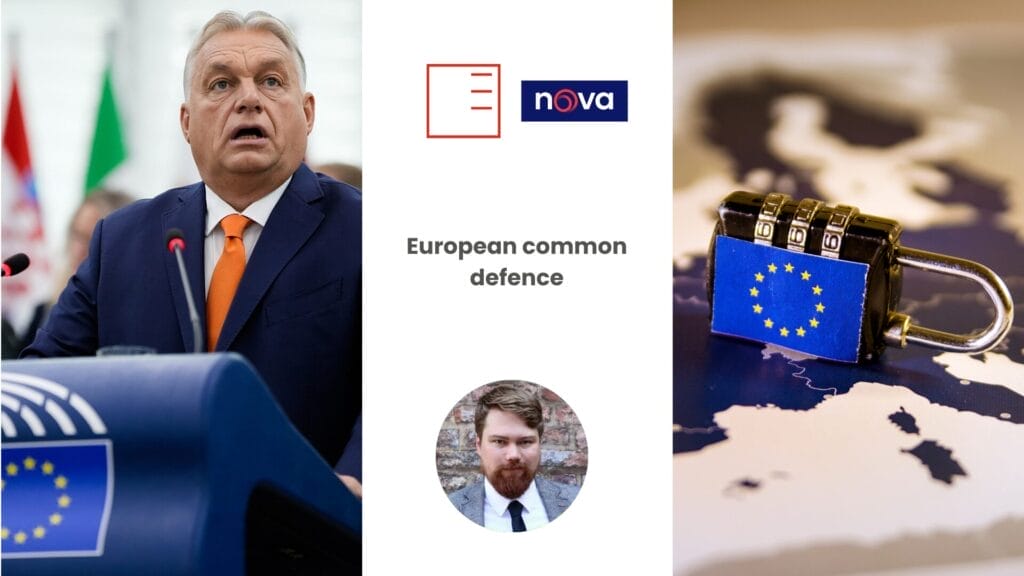
NOVA.cz | European common defence
Europe's unified approach has traditionally been complicated by Hungary, which openly rejects aid to Ukraine. Martin Vokálek, Director of EUROPEUM Institute, commented on the common European defence.

CNN Prima News | European Council conclusions on Ukraine are not binding, warns analyst
As expected, the 26 EU leaders found a consensus on Ukraine. While the text did not bring any new commitments, it showed a "new standard" of strong statements without the consent of one hundred percent of the European Council members. EUROPEUM Institute analyst Zuzana Krulichová comments on the situation.
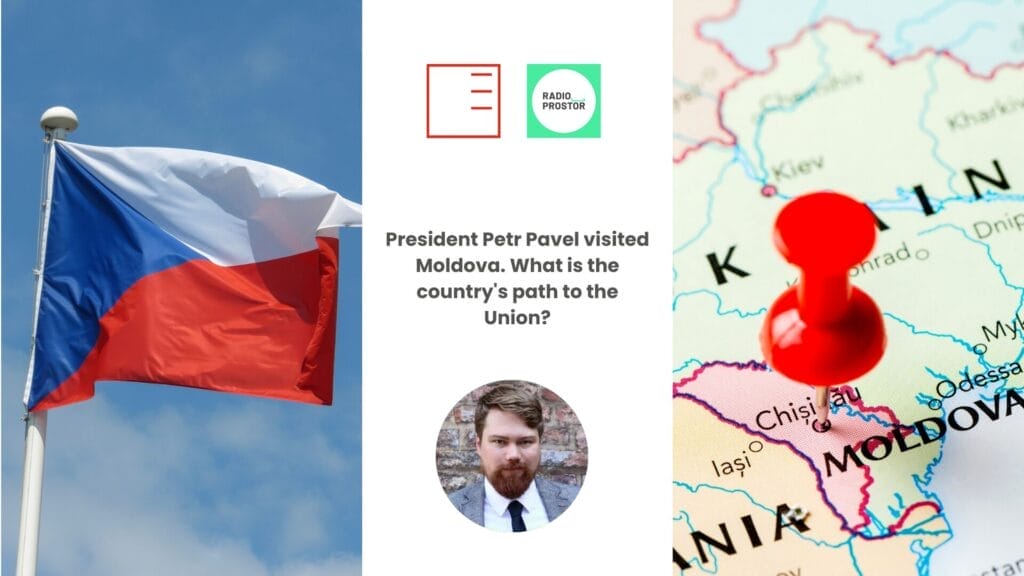
Radio Prostor | President Petr Pavel visited Moldova. What is the country's path to the Union?
President Petr Pavel travelled to Moldova this week. During his state visit, he wants to address bilateral relations between the two countries as well as the current security situation in Europe and the world. Martin Vokálek, Director of the EUROPEUM Institute, commented on the relations between the Czech Republic and Moldova.
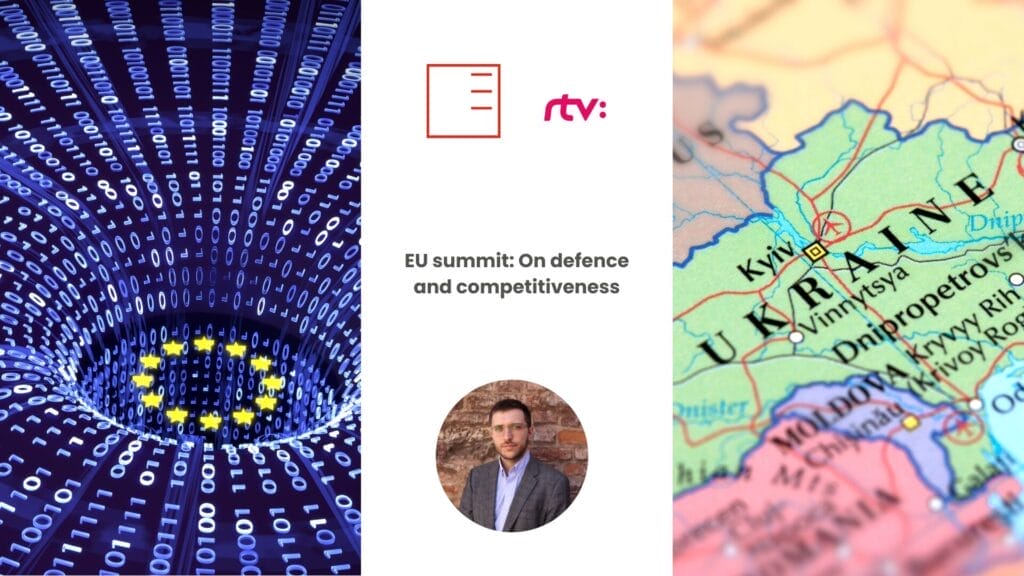
STVR | EU summit: On defence and competitiveness
In Brussels, representatives of the Member States discussed a myriad of issues. One of them is the continuation of further military aid to Ukraine. Twenty-six Member States supported the joint declaration on the continuation of aid, while Hungary opposed it. What weight does this declaration carry if it is not unanimous? Filip Křenek, an analyst at EUROPEUM Institute, commented for STVR.

TN.cz | EU leaders' summit
Viktor Daněk, deputy director of the EUROPEUM Institute, commented for TN Live on the summit in Brussels, which focuses on competitiveness, defence and European unity. He also discussed the current security situation on the international scene.
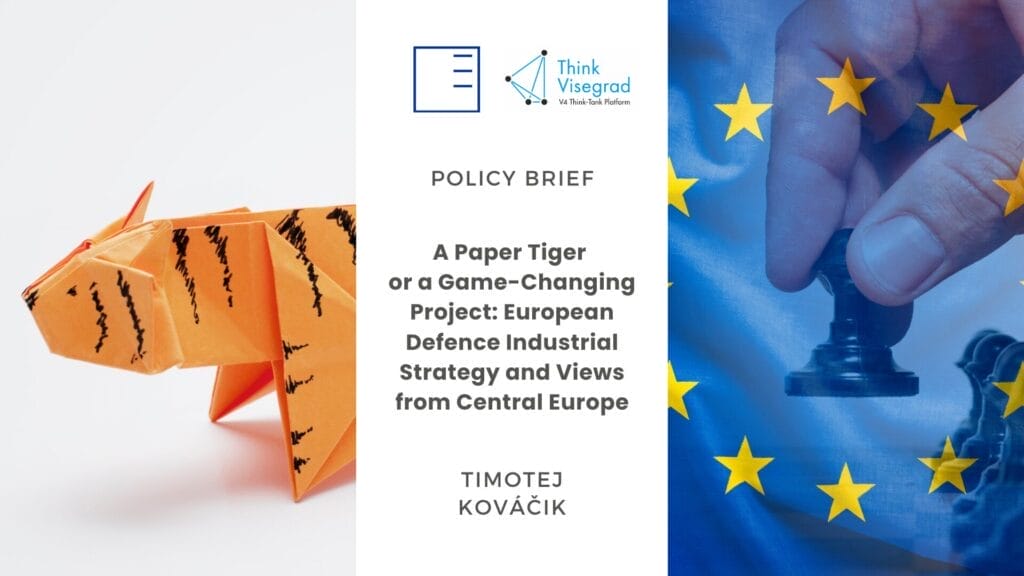
Policy Brief | A Paper Tiger or a Game-Changing Project: European Defence Industrial Strategy and Views from Central Europe
The first-ever European Defence Industrial Strategy (EDIS) was introduced by the European Commission and the High Representative/Vice-President for Foreign Affairs and Security Policy (HR/VP) in March 2024, addressing key challenges in the European defence industry. The strategy aims to increase European defence industrial readiness, encourage Member States to invest in the European defence industry, and reinforce joint European defence procurement and ownership. EU Member States from Central Europe have played a crucial role in supporting Ukraine after the start of the Russian unprovoked and illegal full-scale invasion in February 2022. They also stressed the need to focus the EU's efforts on new initiatives in the field of defence and the defence industry, such as the Act in Support of Ammunition Production or enhancing the European Defence Fund. Writes Timotej Kováčik, Junior Researcher/Analyst focusing on security and defense issues, the EU's Common Foreign and Security Policy, and energy security at the Slovak Foreign Policy Association.
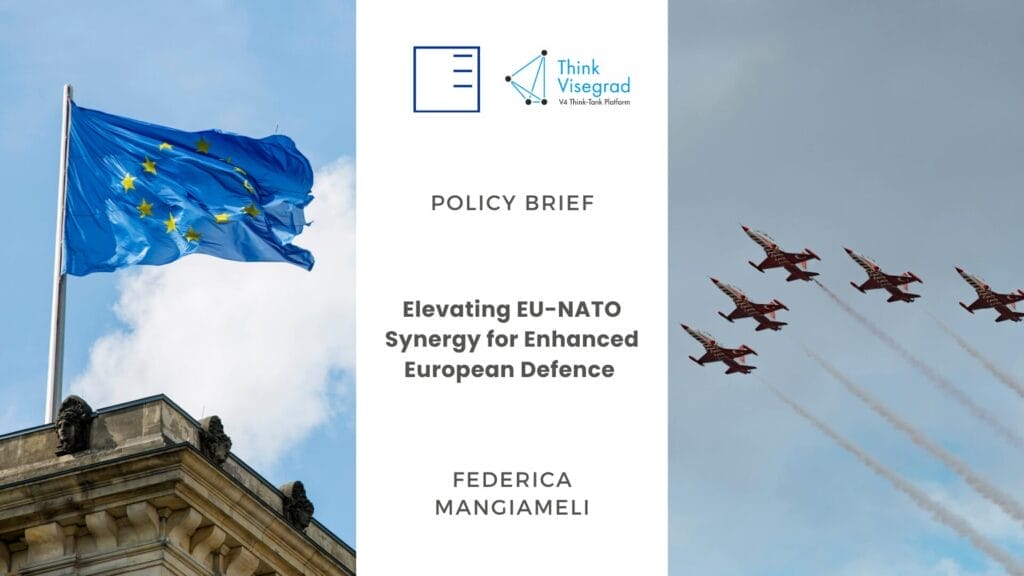
Policy Brief | Elevating EU-NATO Synergy for Enhanced European Defence
For over two decades, there have been numerous attempts to define and frame the relations between the EU and NATO. Three joint declarations and significant steps ahead have been taken and yet, there is no clear vision of how these two organisations should work together more efficiently. The commonly accepted idea of cooperation sees “NATO pulling the strings and the EU pushing the funds” in accordance with their respective nature and scope. Is this unbalanced relation the most suitable strategy to counter current geopolitical threats? No. But can this cooperation be upgraded? Possibly, yet this appears to be easier said than done. Providing the EU with a coherent defence policy and a strong industrial base can be a great additional value for NATO and not just in the extreme case of a possible disengagement of the US. Writes Federica Mangiameli, Programme Manager and Policy Fellow for Defence and Security at GLOBSEC, in her Policy Paper.

Seznam Zprávy | Article 7 was triggered against Hungary, butit leads to nothing, warns analyst
Article 7 has been triggered against Hungary for many years, but it is going nowhere. Unanimous agreement is needed from all EU Member States, except Hungary. I doubt that this will ever happen, says Viktor Daněk, deputy director of EUROPEUM.
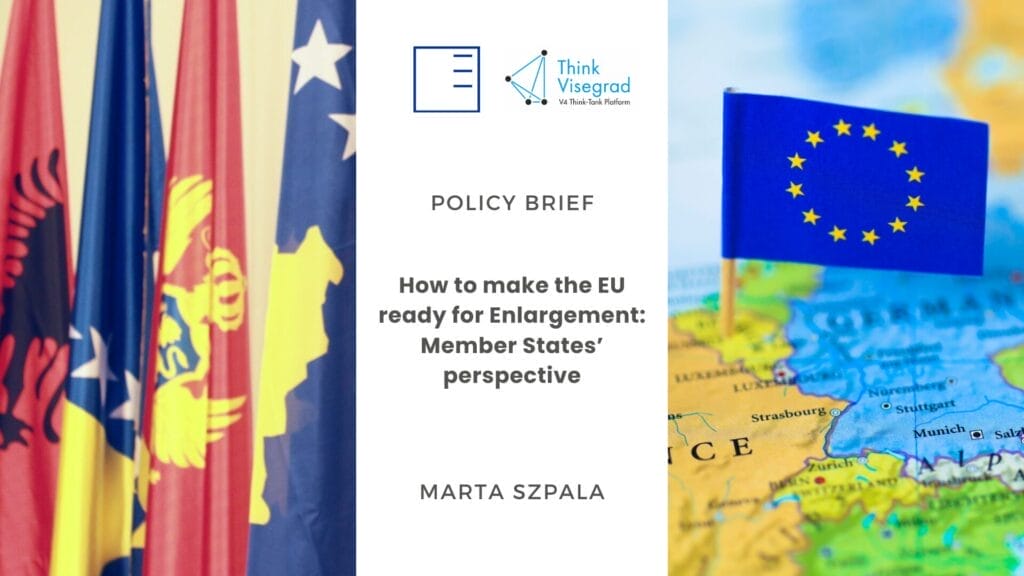
Policy Brief | How to make the EU ready for Enlargement: Member States’ perspective
Russia’s full-scale aggression against Ukraine in February 2022 has brought EU enlargement back as a priority of the EU policy towards the neighbourhood and as a geopolitical tool to ensure peace, stability and prosperity on the entire continent. That resulted in the EU recognising the aspiration of the Associated Trio countries to join the EU and granting membership candidate status to Ukraine and Moldova in 2022 and to Georgia in 2023. In record time, the former two countries also started the EU accession process in June 2024. The accession process of the candidates from the Western Balkans also accelerated. Bosnia and Hercegovina was granted the candidacy status and accession talks with Albania and North Macedonia started in 2022. However, despite the general consensus that enlargement is a geopolitical necessity, the question posed by French President Emmanuel Macron in Bratislava in 2023 – How should we do it? – still remains unanswered. Writes Marta Szpala, a Senior Fellow in the Central European Department at the Center for Eastern Studies.
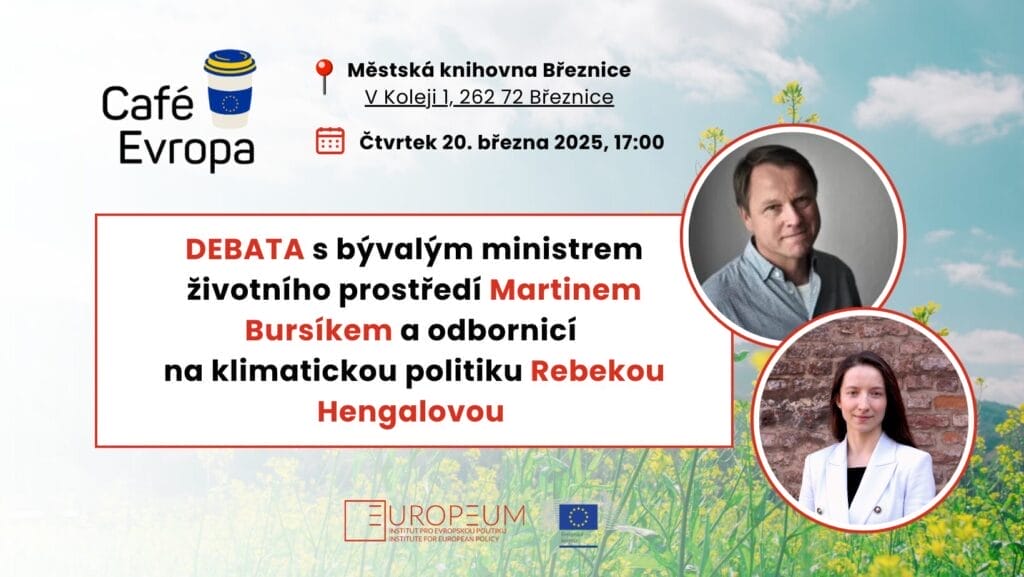
Café Evropa debate: What changes with the climate?
DATE AND PLACE: Thursday, March 20, 5:00 pm, Březnice Municipal Library (V Koleji 1, Březnice) GUESTS: Moderator: Veronika Rajmanová The discussion will be an opportunity for an interesting debate. We look forward to hearing your views! The event is organised in cooperation with the Representation of the European Commission in the Czech Republic. For more […]
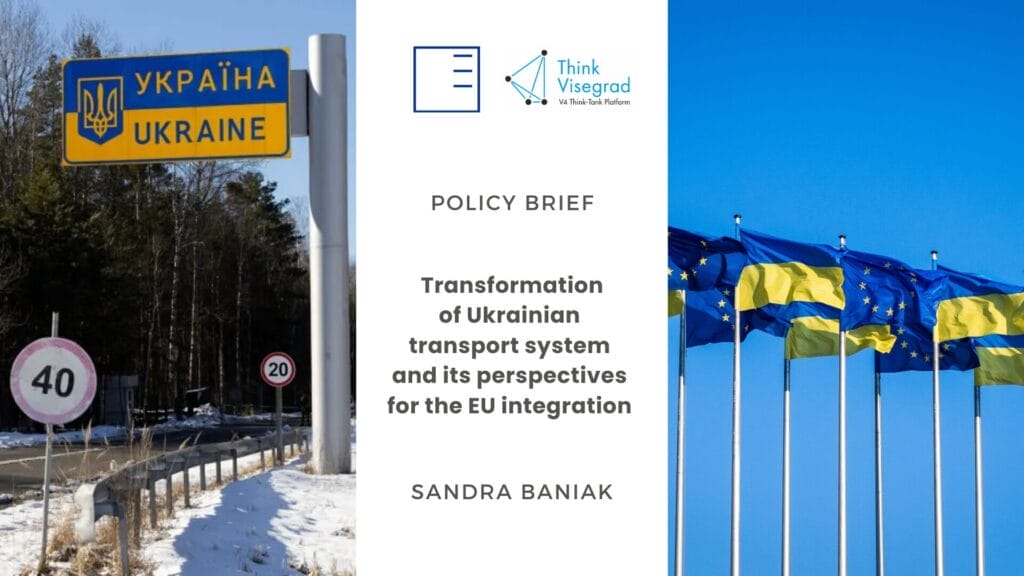
Policy Brief | Transformation of Ukrainian transport system and its perspectives for the EU integration
Russia's full-scale invasion of Ukraine has led to significant changes in the Ukrainian transport sector due to disruptions in supply chains, cargo flows, and damage of the country’s infrastructure. The Ukrainian transport system has undergone significant transformations. The country's borders with Russia and Belarus and its airspace have been closed. In the first months of the full-scale war, the temporary blockage on the operation of Black Sea ports forced Ukraine to develop land transport corridors to the EU countries and neighboring Moldova to enable both export and import of goods needed for the economy. Despite the ongoing war, Ukraine has accelerated a long-planned reform of the country's transport system to adapt its infrastructure to the EU standards and integrate it with the European transport network. Writes Sandra Baniak, a Research Fellow at the Centre for Eastern Studies in the Connectivity and Regional Integration Programme.